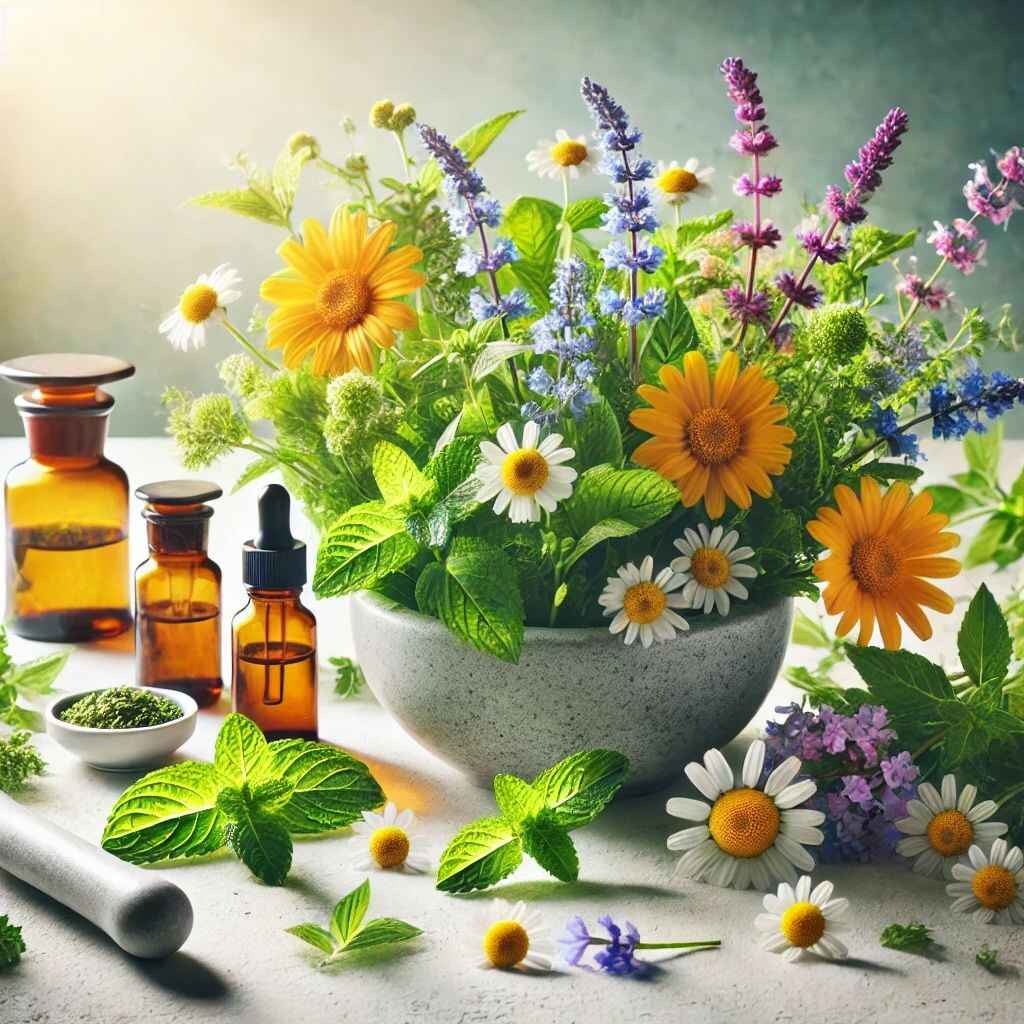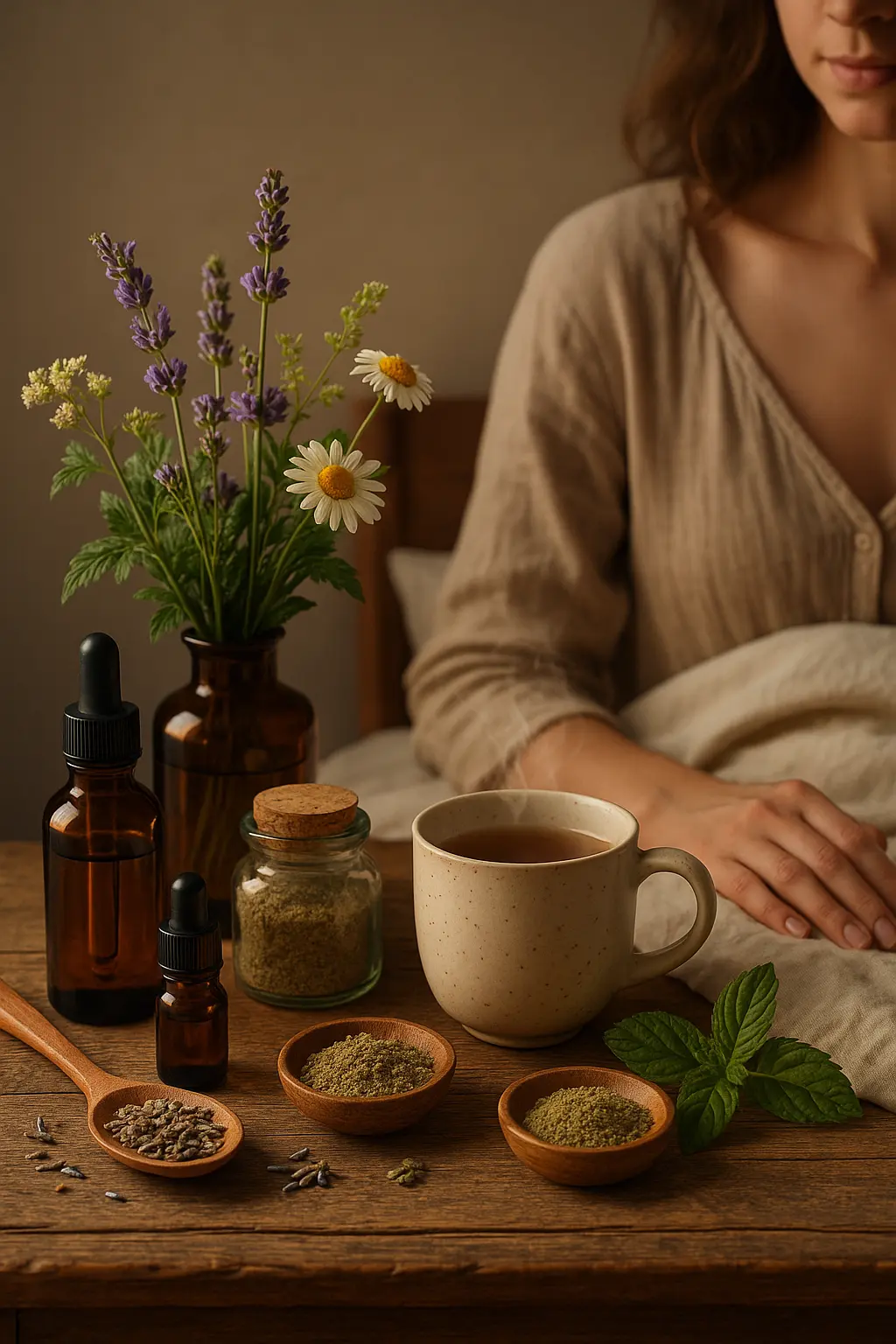Herbal remedies have been cherished for centuries, offering natural solutions for everything from digestive discomfort to boosting immunity. As more people seek out holistic approaches to health and wellness, the popularity of medicinal herbs continues to rise. However, while these plant-based allies can be incredibly beneficial, they also require careful handling and a solid understanding to ensure safe and effective use. In this guide, we’ll explore the essential aspects of herbal safety, empowering you to navigate the world of medicinal herbs with confidence and care.
Understanding the Power of Herbs
Herbs are not just ordinary plants – they are potent, nature-crafted remedies capable of having a profound impact on your health. Unlike pharmaceuticals, which typically contain isolated compounds, herbs offer a complex mix of active ingredients that work synergistically within the body. This complexity is part of what makes herbs so powerful, but it also means that they must be used with respect and knowledge. While herbs can offer gentle, nurturing healing, they can also cause side effects or interact with medications if not used correctly.
It’s crucial to approach herbal remedies with the same caution and reverence you would give to any other medicine. The first step toward herbal safety is understanding the unique properties of the herbs you intend to use.
Start with Reliable Information
One of the most significant challenges in using herbs safely is finding accurate, trustworthy information. To ensure that you’re making informed decisions and practicing herbal safety, here are some tips for gathering reliable information:
- Consult Reputable Sources: Look for books, websites, and experts who are well-regarded in the field of herbalism. Authors with credentials in herbal medicine, naturopathy, or botany are often more reliable than anecdotal sources. Visit our online store for Books about Herbs here.
- Understand the Science: While traditional knowledge is invaluable, it’s also important to consider scientific research on herbal remedies. Clinical studies provide insights into how herbs work, appropriate dosages, and potential side effects.
- Keep Learning: Herbalism is a vast field with a wealth of knowledge to explore. Stay curious and continue your education to deepen your understanding and practice.
Know Your Herbs: Identification and Quality
A key aspect of herbal safety is ensuring that you’re using the correct herb in the right form. Misidentification or poor-quality herbs can lead to ineffective treatments or harmful side effects.
- Proper Identification: If you’re harvesting your own herbs, accurate identification is crucial. Many plants look similar, but slight differences can be the line between a healing herb and a toxic one. Invest in a good field guide or take a course in plant identification to enhance your skills.
- Sourcing Quality Herbs: When purchasing herbs, choose suppliers that prioritize quality. Freshness matters, too—dried herbs lose potency over time, so store them properly.
- Forms of Herbs: Herbs come in various forms, including dried, fresh, tinctures, extracts, and essential oils. Each form has its own set of safety considerations. For example, essential oils are highly concentrated and should never be ingested without proper guidance.
Dosage: The Key to Safe Use
Herbs are most effective when used at the right dosage. Too little may not produce the desired effect, while too much can lead to adverse reactions. Here’s how to safely dose your herbal remedies:
- Follow Recommended Guidelines: Dosage recommendations vary based on the form of the herb, your body weight, age, and health condition. Always start with the lowest effective dose, especially if you’re new to a particular herb.
- Consider Individual Sensitivity: People react differently to herbs. Factors like genetics, existing health conditions, and diet can influence how your body responds. If you’re sensitive to medications, you might also be more sensitive to herbs.
- Be Cautious with Potent Herbs: Some herbs, such as digitalis (foxglove) and ephedra, are extremely potent and can be toxic at high doses. These should only be used under the guidance of a qualified herbalist or healthcare provider.
Potential Interactions with Medications
Understanding how herbs interact with other medications or supplements is one of the most crucial aspects of herbal safety. Some herbs can amplify or diminish the effects of pharmaceuticals, leading to unintended consequences.
- Common Interactions: For instance, St. John’s Wort, often used for depression, can interfere with the effectiveness of birth control pills, antidepressants, and blood thinners. Garlic and ginkgo biloba may increase the risk of bleeding when taken with anticoagulants.
- Consult Your Doctor: Before adding any new herb to your routine, especially if you’re on medication, consult with your healthcare provider. They can help you identify potential interactions and adjust dosages as needed.
- Monitor Your Body’s Response: Pay close attention to how your body reacts when you start using a new herb, particularly if you’re taking other medications. If you notice unusual symptoms like dizziness, nausea, or changes in heart rate, stop using the herb and seek medical advice.
Allergies and Sensitivities
Just as some people are allergic to certain foods, some may also be allergic or sensitive to specific herbs. Allergic reactions can range from mild skin irritation to severe anaphylaxis.
- Patch Testing: When using a new herb topically, perform a patch test first. Apply a small amount to your skin and wait 24 hours to see if there’s a reaction.
- Introduce Herbs Slowly: When trying a new herb internally, start with a small amount and gradually increase the dosage. This allows you to gauge your body’s tolerance.
- Know Common Allergens: Some herbs, like chamomile and echinacea, belong to the daisy family and can cause allergic reactions in people sensitive to ragweed. Be aware of your allergies and avoid herbs that might trigger them.
Herbs and Pregnancy
Pregnancy is a time when many turn to natural remedies, but it’s also a time to be extra cautious with herbs. Some herbs can stimulate the uterus, affect hormone levels, or cross the placenta, impacting the developing baby.
- Safe Herbs for Pregnancy: Some herbs, like ginger, are generally considered safe and can help with nausea. However, others, like pennyroyal, blue cohosh or St. John’s Wort should be avoided due to their potential to induce miscarriage.
- Consult a Professional: Always consult with a healthcare provider or an experienced herbalist before using any herbs during pregnancy. They can guide you on safe options and dosages.
Conclusion: Respect the Power of Herbs
Herbs serve as powerful allies for health and healing, but using them effectively requires respect and knowledge. By understanding the properties of the herbs you use, sourcing quality products, and being mindful of dosages and potential interactions, you can safely incorporate herbal remedies into your wellness routine. Remember, when in doubt, consult with a knowledgeable herbalist or healthcare provider to ensure you’re using herbs safely and effectively.
Empower yourself with the right knowledge, and you’ll be well on your way to reaping the many benefits that medicinal herbs have to offer – safely and confidently.
Explore more crystal care tips and shop our collection at MysticMineralsMarket.com!











